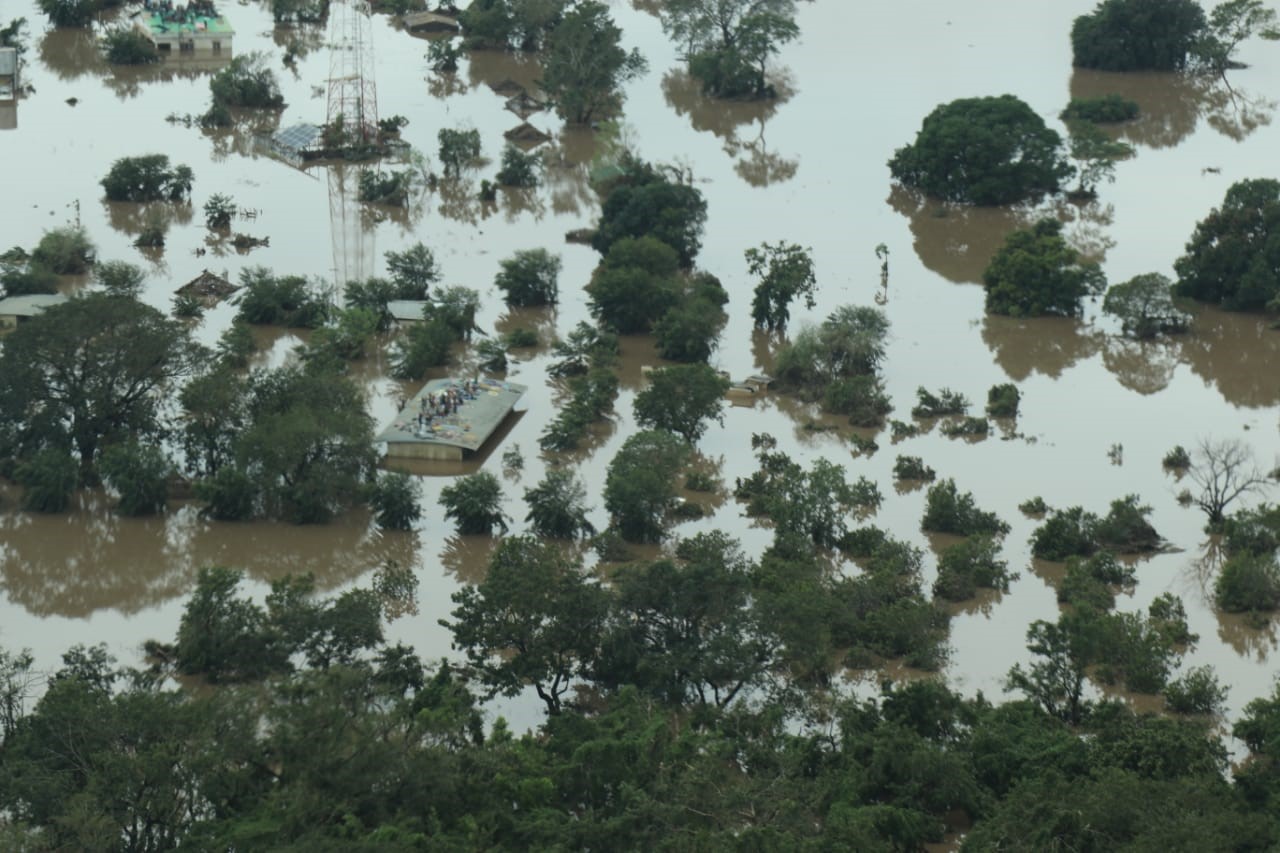Predicting natural events such as storms and earthquakes is a challenge, but advance notice can help save lives. During Cyclones Idai and Kenneth in 2019, Dr Emerton and Dr Ficchi’s real-time flood hazard reports helped national and international aid agencies working in Mozambique deliver aid to those most in need.
In March 2019, Cyclone Idai hit central Mozambique, claiming more than 1000 lives and leaving hundreds of thousands homeless. Just six weeks later Cyclone Kenneth devastated northern Mozambique, bringing dangerous winds and severe flooding to a country still reeling from the earlier storm. Sudden catastrophic floods challenge aid agencies to rescue affected people and to deliver food, supplies and medical equipment fast, while at the same time trying to minimise the risk to their own staff.
Dr Ficchì and Dr Emerton work in partnership with a range of organisations, including the European Centre for Medium-Range Weather Forecasts and the University of Bristol, using weather data and forecasting models to produce simulations that help predict future weather and flooding events.
During Cyclone Idai they used these models to provide real-time emergency flood hazard reports to the UK government’s Department for International Development and to aid agencies operating in Mozambique. The detailed reports pinpointed regions at risk and the likely severity and duration of floods up to 30 days in advance. This information is designed to help humanitarian organisations make more informed decisions on high-risk areas and therefore take appropriate actions to help those in danger both during and after the cyclone.
When Cyclone Kenneth threatened Mozambique just weeks later, their strategic support was called on again, supporting DFID and in-country partners in their efforts to provide life-saving shelter, food, safe drinking water and supplies before the cyclone struck.
Partners: Department for International Development (DFID), ECMWF, University of Bristol
Funders: UK Aid from the Department for International Development (DFID), Natural Environment Research Council (NERC)
Judges’ comment: “This project demonstrates exciting real-time impact that is influencing emergency relief interventions at an international level.”
Shortlisted for the University Research Engagement and Impact Awards 2019 – WINNER
First published: June 2019
Find out more

